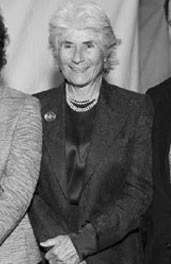Are you If not, could you forward this site to this person? |
|
 |
 infomore |
I have done this site especially for Nancy Kohlberg |
| |
Nancy is wife of Jerome Kohlberg Jr (American businessman and early pioneer in the private equity and leveraged buyout industries founding private equity firm Kohlberg Kravis Roberts & Co. and later Kohlberg & Company)
 |
 |
 |
Sorry for my poor english translation.
The leveraged buy out (LBO or) is acquiring a company using a high level of debt (debt or debt Acquisition of acquisition), thereby reducing the commitment to equity (equity) by the buyer.
With a LBO is normally look for two purposes: first is to reduce the equity invested, resulting in an improved rate of return in percentage terms. The second is to allow the proper cash flow generated by the target company do to service acquisition debt. In addition, use the assets and cash flow generation of the acquired company as collateral for the debt of acquisition, provided within structures that enable this operation without incurring financial assistance.
To achieve greater fiscal efficiency, it is usually the following process: first place the formation of a new company (Newco) which provides the equity and debt acquisition. Second, the acquisition of the new company or Newco of 100% of the shares of the target company. Third, the target company's merger with Newco, so that acquisition debt is added to balance the acquired company. And fourth, the debt repayment by the target company.
In the late sixties, in the infancy of the venture capital industry, purchases are called bootstrap financing. Jerome Kohlberg Jr., one of the founding partners of KKR, is, according to Harvard Business School, the inventor of the leveraged buyout in 1964.
From those beginnings over 40 years until the present time, little has changed the modus operandi of the subsequent management of target companies. As a first measure seeks to reduce the acquisition debt as quickly as possible through divestment of properties or may not affect the operation (for example, the sale of the premises owned by Cortefiel after the entry of funds). As a second step comes to reducing wasteful spending (higher where management is separated from the property) to optimize the return on the income statement as a business plan. Finally, we proceed to tackle the growth plans set out in the business plan prepared by the management team.
-> Created for Jerome, Nancy Kohlberg
With the reduction of interest rates in recent years and the easier access to funding amounts, the hardest thing now is to find companies with ideal characteristics for an LBO. Some of these features is that they are companies with stable cash flow history, operating in sectors with growth potential, business plans that are ambitious and well-structured and are run by management teams with knowledge of the company and industry and proven management ability.
Moreover, intense competition among private equity firms led to an increase in the prices of transactions that are closing, whether it is a private company (in which case the auction has become the standard way of sale), as if talking about a listed company. This price increase reduces the margin for error, having already produced the first cases of non-payment of the acquisition debt in some small operations in recent years.
However, despite the risk, LBO transactions has been steady growth in recent years. According to a study released by Citigroup, 25% of mergers and acquisitions in the U.S. in 2006 stemming from leveraged buyout, compared to 15% a year or 5% in 1999.
----
-> Site for Nancy Kohlberg, Jerome
Henry R. Kravis, co-founder of one of the largest companies in private equity funds to deliver the business school at Columbia University. The donation is the largest in the history of the New York institution
Columbia University reported that the money donated by the employer used for the construction of a new business school in Harlem. One of the new buildings will be named, of course, Henry R. Kravis Building. Kravis, who graduated in 1969 from Columbia Business School, is co-founder of private equity giant Kohlberg Kravis Roberts & Company.
Speaking to reporters, the businessman said: "We're not just building a building, we are building a community of entrepreneurs." The titan of private equity is a fervent supporter of the Columbia Business School in 2006 had donated $ 10 million. Columbia University came notable names associated with investment funds, including Alan Patricof (class of 1957) and Lionel Pincus (class of 1956), who died last year.
----
-> Site for Nancy Kohlberg, Jerome
Sara Lee stock market is triggered by an alleged offer of KKR
The market value of Sara Lee group came up almost 13% yesterday at the opening session, after the New York Post reports that private equity firm Kohlberg Kravis Roberts & Co (KKR) had submitted a bid not officer for the company, which had been rejected. Sara Lee traded at $ 15.15 at the opening, up from 13.43 at Friday's close. Then, the gains were fading to $ 14.4 (+7.2%).
The American publication refers to anonymous sources familiar with the negotiations, according to which the venture capital company would have valued at 12,000 million, 8760 million euros. According to these sources, the company supplies and consumer goods would be trying to sell its bakery business for more than 700 million euros, and looking for his successor to former CEO Brenda Barnes, who left the company in August for health reasons . The newspaper said that Unilever would also be interested in Sara Lee if he could dispense with his bakery business.
Spokesmen for both companies asked by Bloomberg declined comment. The New York Post notes in its information KKR declined to comment and that Sara Lee did not return calls.
----
-> Site for Nancy Kohlberg, Jerome
Kohlberg Kravis Roberts & Co. (KKR) has agreed to buy First Data Corp., the largest processor of information on credit card payments for about 29 billion dollars. This is the second largest leveraged buyout in so far this year.
KKR will pay $ 34 per share in cash for First Data, 26% more than the closing price of the session on Friday March 30, the companies said in a statement.
This is the highest price offered in a leveraged buyout (LBO its acronym in English) since KKR and Texas Pacific Group in February agreed to buy power company TXU Corp., Dallas, Texas, for 31 billion dollars, plus 12 billion in debt.
Henry Kravis and George Roberts, KKR co-founders, have so far revealed plans to spend an unprecedented amount of 100 billion dollars in company acquisitions in the past six months.
The chief executive of First Data Ric Duques Henry, the company put on sale seven months after it split its subsidiary specializing in the transfer of remittances Western Union, while struggling to increase profits.
The purchase of First Data gives KKR a company in "the forefront of the global trend towards electronic payments," said KKR executive Scott Nuttall in the statement.
A KKR probably has attracted the stable cash flow from First Data's payment processing, and the thousand 500 million dollars of net profit achieved by the company last year, analysts say.
-> Site for Nancy Kohlberg, Jerome
A string of purchases
This transaction follows other purchases made by KKR, as the retail chain Dollar General Corp., Laureate Education Inc. and TXU Corp. KKR and Stefano Pessina billionaire last week increased its offer of 19 thousand 900 million dollars on Alliance Boots Plc, the largest pharmacy chain in the UK.
Venture Capital Firms
Venture capital firms typically borrow the equivalent of two or three thirds of the price of the target company to purchase and finance the rest with cash from investors and with equity.
These firms aim to boost the acquired businesses or improve the performance of these before selling them within five years to other funds or investors through initial public offerings.
-> Created for Jerome, Nancy Kohlberg